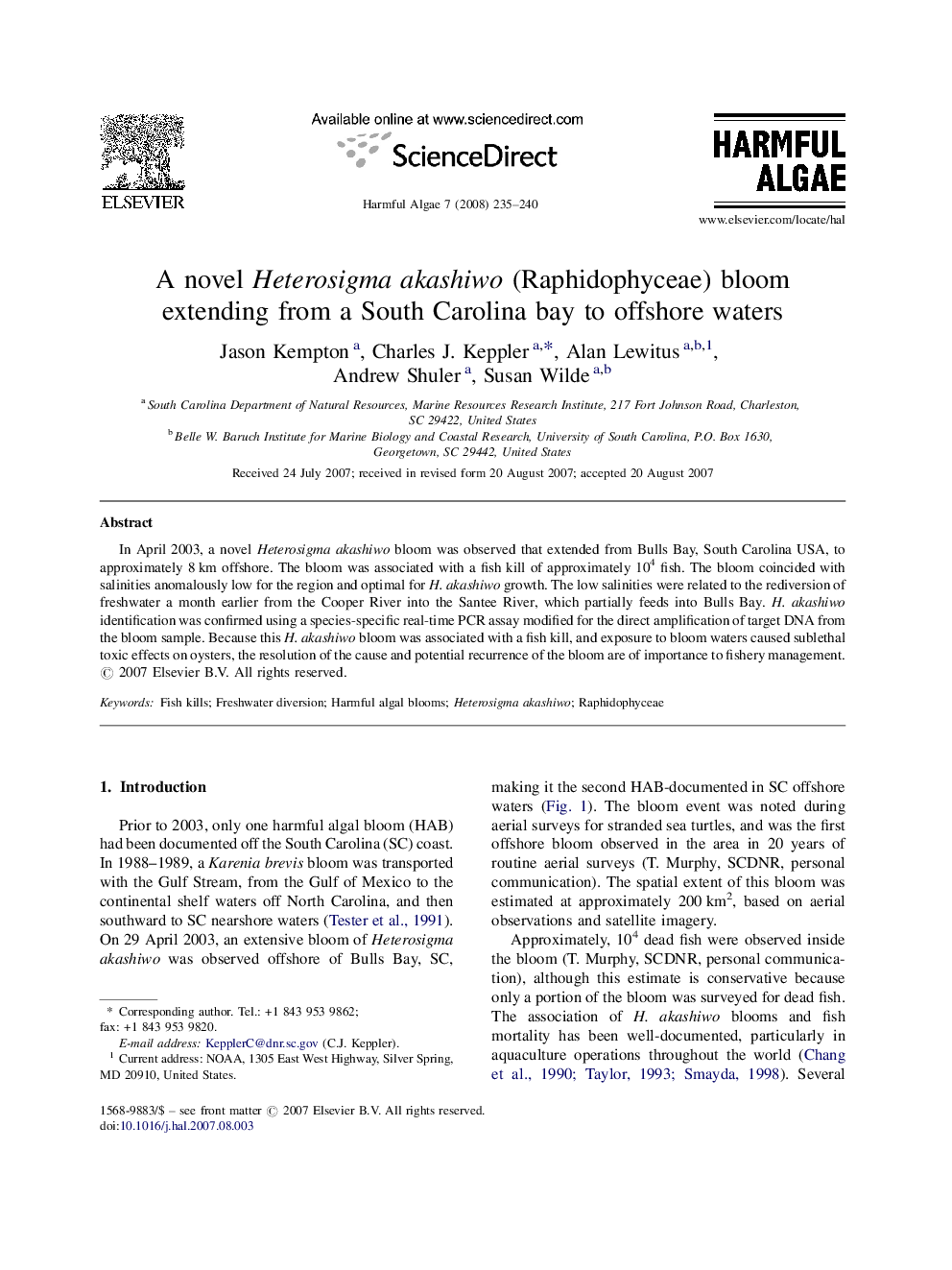| Article ID | Journal | Published Year | Pages | File Type |
|---|---|---|---|---|
| 4546149 | Harmful Algae | 2008 | 6 Pages |
Abstract
In April 2003, a novel Heterosigma akashiwo bloom was observed that extended from Bulls Bay, South Carolina USA, to approximately 8Â km offshore. The bloom was associated with a fish kill of approximately 104 fish. The bloom coincided with salinities anomalously low for the region and optimal for H. akashiwo growth. The low salinities were related to the rediversion of freshwater a month earlier from the Cooper River into the Santee River, which partially feeds into Bulls Bay. H. akashiwo identification was confirmed using a species-specific real-time PCR assay modified for the direct amplification of target DNA from the bloom sample. Because this H. akashiwo bloom was associated with a fish kill, and exposure to bloom waters caused sublethal toxic effects on oysters, the resolution of the cause and potential recurrence of the bloom are of importance to fishery management.
Related Topics
Life Sciences
Agricultural and Biological Sciences
Aquatic Science
Authors
Jason Kempton, Charles J. Keppler, Alan Lewitus, Andrew Shuler, Susan Wilde,
